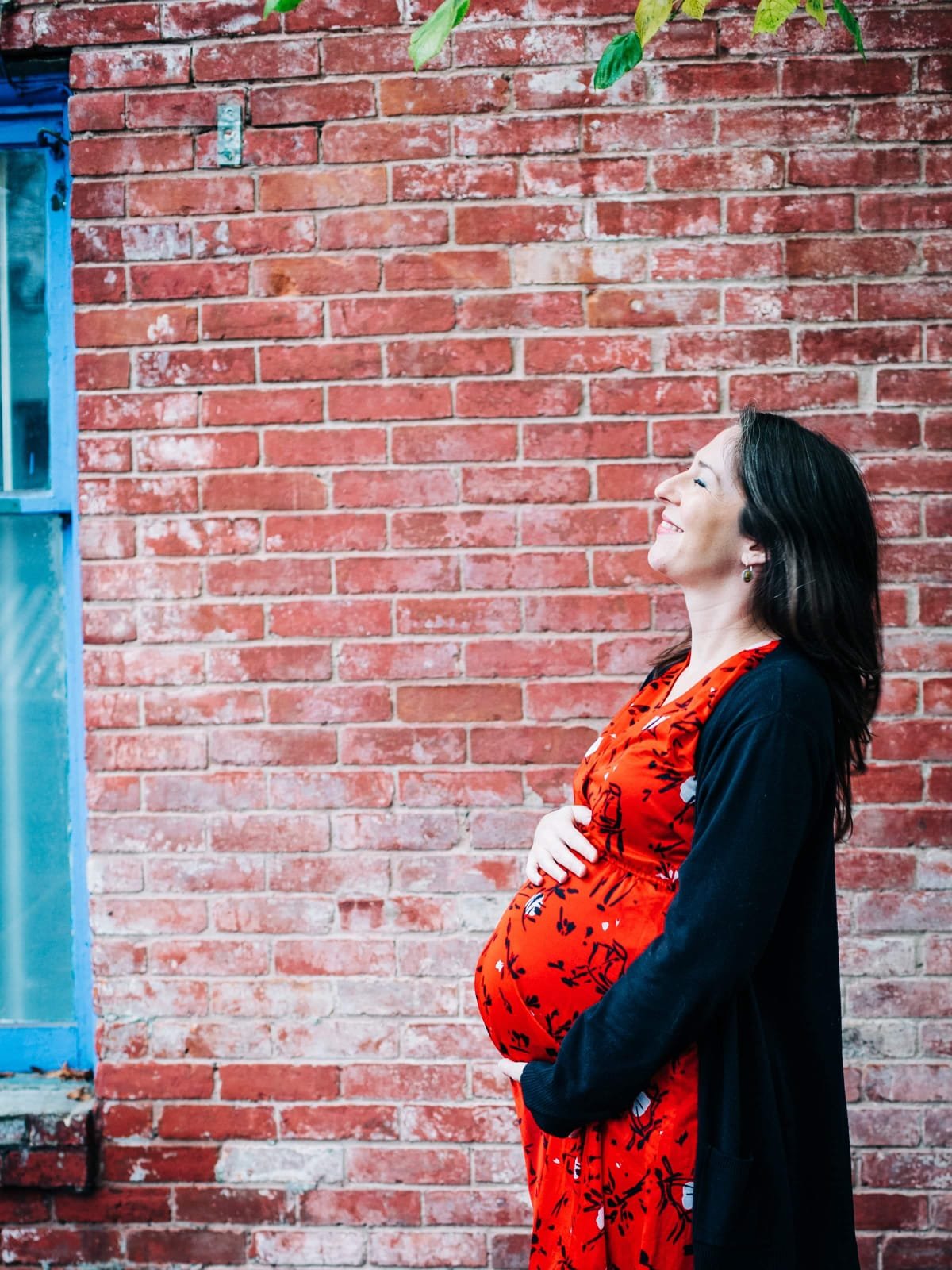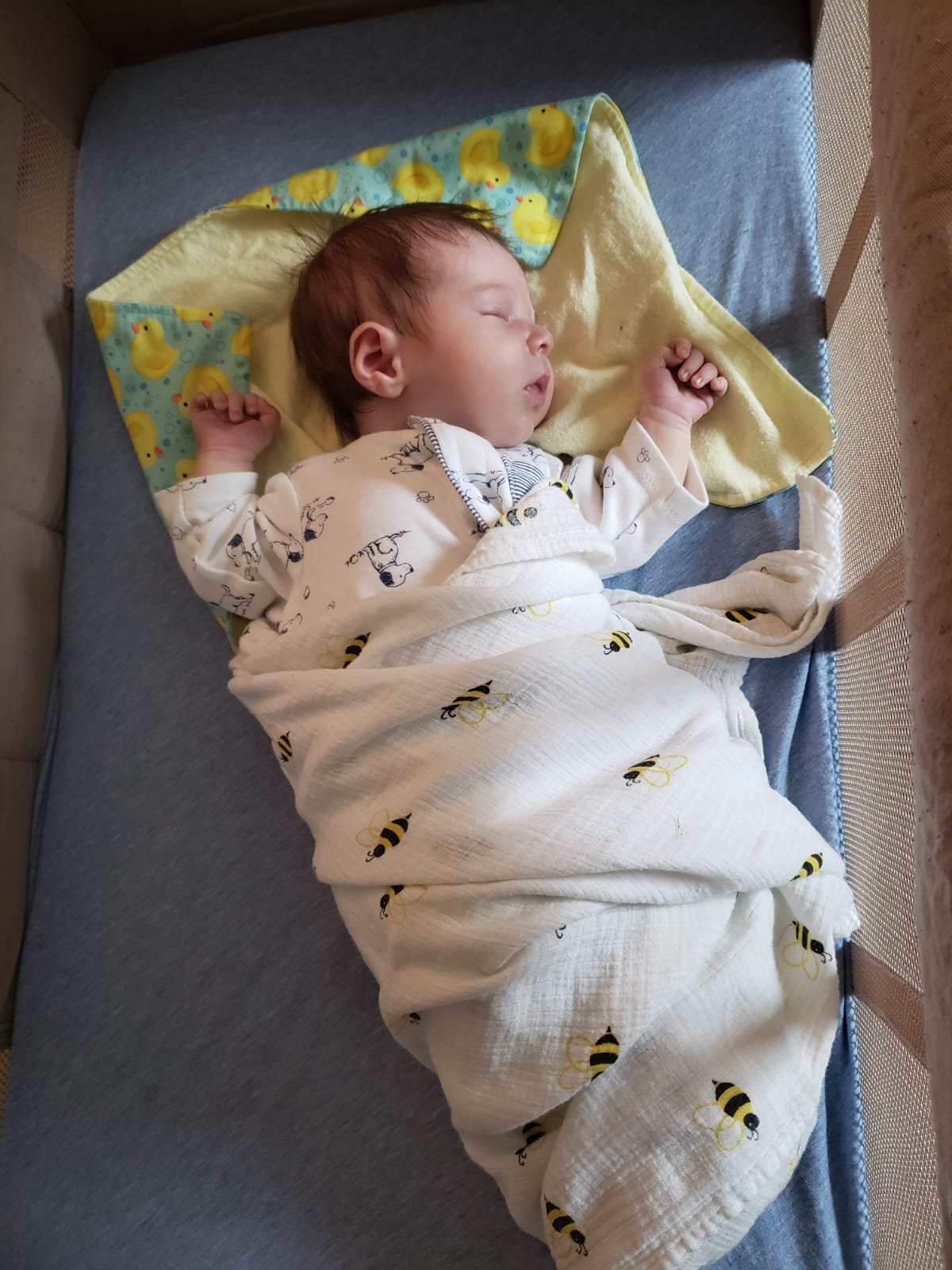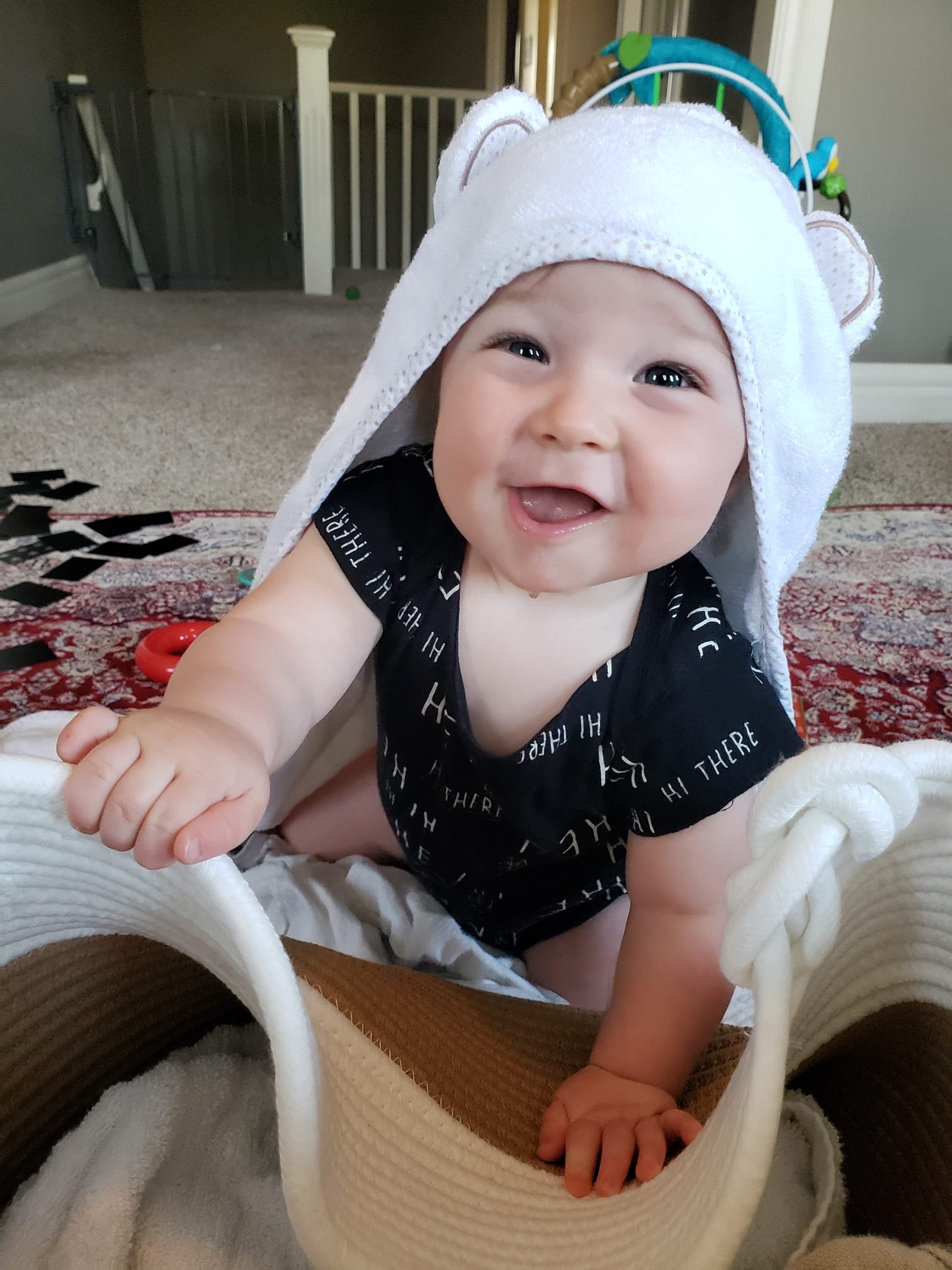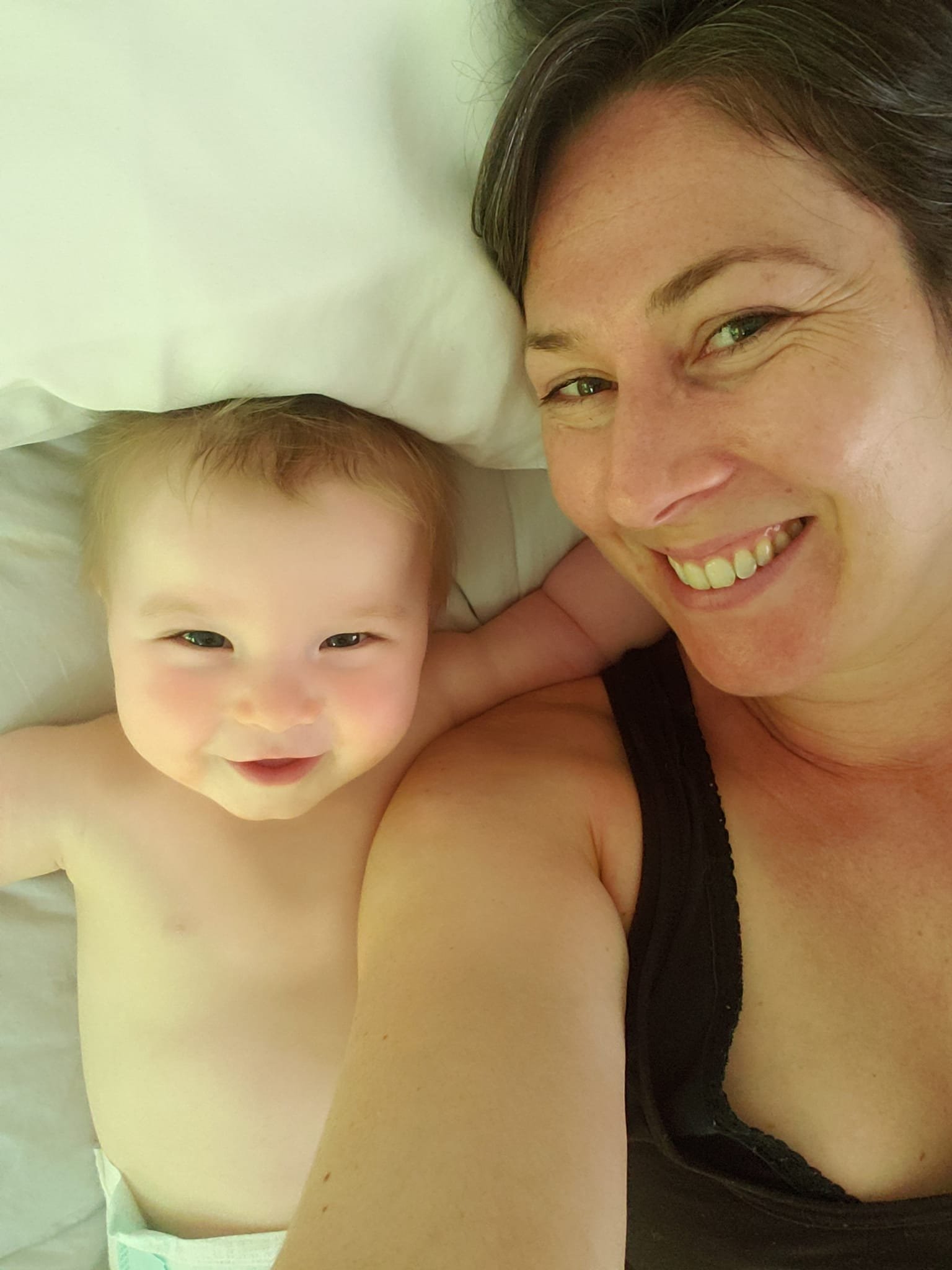Things I Wish I’d Known When I Was Pregnant
I’ve been a mom for almost a whole year! I mean, you probably shouldn’t listen to me. But here’s what I’ve learned anyway.
Keep this content free by becoming a member from $5/month
When my little one was a few weeks old, I remember feeling like I’d been hired for a job for which I had no experience. The hours were 24/7, there were infinite manuals, and zero agreement on the rules. Everyone has an opinion on parenting and there is no real gold standard to show you the “right” thing to do. My baby just turned one, and I’ve been thinking a lot about what I have learned in the last year. One of the biggest things is how hard it is to be a parent in this culture, partly because we don’t agree on how to do it. Mom guilt starts real early and gets real intense. Quality, affordable childcare is a way bigger problem than I’d ever imagined before I needed it. Even some of the official safety guidelines are unreasonable for real life. Googling is about as harmful as it is helpful.
So this is my retrospective. It’s partly an attempt to nail down what I’ve learned so that I don’t forget (in case I ever decide to do this again!). It’s also a way of processing all the agonizing research and difficult decision-making that seemed to arise once a week or so. These are the things that worked for me with my particular kid in my particular family (with my particular values and personality!). A lot of it is based on evidence and research, but often the best evidence-based answer ends up being: “it depends on the kid.” Welcome. Here’s what I learned in the last year.
Pregnancy
My back was killing me on this day. Yoga and my physiotherapist sorted me right out, though, and the pain did not continue for the whole pregnancy. Yes, the support belts do help.
The first trimester sucks. It’s the worst and you’re not supposed to tell anyone.
Tell whoever you want, as long as you’re comfortable with also telling them if something goes wrong.
Things do go wrong sometimes. If that happens to you, get some help. You are far from alone.
Most of the time, though, everything is okay. Babies are surprisingly resilient.
If you could cause a miscarriage by drinking too much coffee or using the wrong sunscreen, abortions would be a whole lot easier.
Read Expecting Better by Emily Oster and not much else.
Rub your belly a lot during pregnancy. Talk to your baby. They can feel you.
Don’t stress too much about getting stressed. Pregnancy is stressful. Babies learn to deal with that.
That being said, this is a good time to prioritize your needs and start getting rid of toxic friends or habits. Consider putting some boundaries around your news and social media consumption.
If you haven’t already, this is when you should start getting more comfortable with asking for help. It is okay to need support, and it makes parenting a million times easier. A lot of parents know this and are super happy to pay it forward.
Do prenatal yoga, acupuncture, and whatever other bodywork you like and can afford. They’ll help with a lot of things, including childbirth and recovery.
Go see a pelvic floor physiotherapist early on in your pregnancy to get some good practices and prepare. It’s expensive but invaluable. If you go too late, there will likely be weird stuff going on that you actually probably don’t need to know about and will freak you out more than it will help you.
It’s normal to have lots of weird stuff going on. Most of it resolves on its own.
If you can afford it, get a doula early on so you can ask her a million questions that your doctor/midwife does not have time for. You’ll probably be glad to have them during your birth, too.
Childbirth
Yes, this moment makes it 100% all worth it.
There is a lot of controversy about whether to be in the hospital or at home. It does matter that you feel as safe and supported as possible, so ignore everyone and choose the environment that feels best for you.
That being said, I will be in a hospital if I do this again. A pretty high percentage of home births end up in the hospital as an emergency, and I’d rather already be there if something goes wrong.
I didn’t have an epidural for my first birth, and I don’t regret that, but I will definitely be asking for one if I do it again.
Bring the stuff that will make you feel more comfortable and supported, including snacks (you may or may not want to eat, the staff may or may not let you: coconut water or Gatorade are a good idea).
Bring a change of clothes for your partner, who might be sleeping in the corner for a couple of days.
I still love my Push Playlist: a collection of songs that are fun and make me feel like everything is gonna be okay. The nurses liked it, too!
Don’t get too attached to having an intervention-free birth. I think they are relatively uncommon, and a lot of interventions are useful and helpful and don’t necessarily lead to a cascade of interventions. It seems like a lot of bad outcomes come from resisting an intervention too long or feeling like you failed in some way if you needed help. Keep only one goal in mind: getting you and the baby through to the other side. Nothing else matters.
If you get to pushing, push with your contractions. Listen to your body, not the doctors. Not everybody gets this sensation and you may feel it less with an epidural, but it’s hard to miss. Believe it or not, your body knows how to do this. Pushing with contractions helps to avoid tearing.
Tearing is not as scary as you’d think. Your body knows how to heal up pretty well and pretty quickly.
Early Postpartum
He was such a tiny little guy
Plan to lie in bed for about two weeks. Plan to need a LOT of help for about a month. Talk about it beforehand: someone else (partner, family, friends etc) should be handling the food and cleaning while you focus on your baby and your healing. Depending on what happened, you might not be able to move much, especially in the first few days. My doula would say “five days in the bed, five days on the bed, five days around the bed.”
Have bone broth ready to go. Have as many prepared meals in the freezer as you can. Spend money on nourishing delicious food that you don’t have to prepare. When I look back on these days, they were really pretty horrible except for the food. The food was what got me through the first few weeks! I mean my kid was pretty cool. But the lasagna was really memorable.
Diaper rash is normal. If you constantly leaked liquid poop, you’d have diaper rash, too.
Get diaper cream and Vaseline/Aquaphor. Slather on the white, then the clear.
The first three months is considered the “fourth trimester.” Be very gentle with yourself and baby during this time. Hormones are wild and the first few weeks can be very hard. It gets better quickly, but prepare to need a lot of support.
It’s hard to describe how cool it is to meet and get to know your baby. As difficult as this time is in so many ways, this part really does make it all worth it.
That being said, it’s normal to not feel totally “in love” with your baby right away. For some people, this takes a bit of time.
It’s usually around 8 weeks that things start to feel significantly better. The extreme crying period is usually better, the baby can start sleeping a little longer at night, and, the best part: they usually start smiling at you a bit at this time. This helps a lot.
Breastfeeding
You don’t have to do it. The biggest long-term benefit the studies have found is that it might reduce your risk of breast cancer, but formula-fed babies are just as healthy as breastfed ones later in life. You are not a bad mom if you can’t/don’t want to breastfeed.
If you want to/can, set some boundaries. Get them used to a bottle by offering one every week or so and let someone else feed them while you have a nap. You will not regret this when it’s time to wean.
You might get the advice that you should breastfeed them at every slight fussiness. Don’t do that (unless they are underweight). Practice other forms of soothing and distraction and hand the baby off a little here and there (especially at night as they get a bit older). Yes, more nursing will stimulate supply, but your body can’t produce more milk unless you have some time to eat and nap. You are still a person, not a milk machine.
It is okay to give the baby a bottle sometimes. As my doctor put it, “Nipple confusion is not a thing.” I was afraid supplementing with formula would totally derail breastfeeding (and there is a risk that the baby will prefer it) but it didn’t. It helped. It also made things easier later when we did want to use a bottle. I only gave him a bottle after the breast at first, which I think took away the “either/or” idea, but you may not have much control over this anyway.
Breastfeeding does hurt in the beginning (at least, it did for me). Their mouths are just very small and they have to learn how to latch. If you’re having trouble with this, get someone to help you with latching, but it will get better on its own when they get a bit bigger. It won’t hurt forever. Maybe it feels gentle and sweet right away for some people. Not for me. I won’t worry about this so much if I do it again unless I have wounds.
Get a breast pump. They are useful for supply, getting out of the house for a couple of hours, and weaning.
If you get blisters, get nipple cream from the doctor or over the counter. Cut up little squares of saran wrap to put over your creamed nipples to protect them between feeds.
You have to eat and drink a lot while breastfeeding. Listen to your body and consume what it wants.
Breastfeeding hormones are powerful. You may have issues like incontinence, back pain, and diastasis for a while, and these can be related to your tissues being all soft and open because of these hormones. It takes a full three months from the very last nursing session for your hormones to regulate and return your tissues to their previous strength!
Breastfeeding doesn’t necessarily help with weight loss. Some people lose weight with breastfeeding, but others don’t. Sometimes the hormones actually make you retain weight (this was the case for me). That is okay. Your body is doing what it needs to do.
You’re allowed to have whatever feelings you have about your weight. It does change and we’d all love to be enlightened enough to not care, but if you find out you care, there’s nothing wrong with you. Focus on taking care of yourself, but let yourself have your feelings.
Weaning is easiest to do if you start around 9 months when they start losing interest in nursing. Offer them the bottle but don’t refuse them if they want the breast. (It took me and Grant a couple of months and weaned fully just before 12 months).
As long as you want to keep doing it, keep doing it. There’s no right or wrong amount of time to be breastfeeding. Do what works for you.
Baby Sleep
He was only allowed to sleep with all this crap in the crib because we were all awake and watching him.
Safe sleep: get a bunch of sleepsacks and make sure all your crib sheets fit really well. No blankets, pillows, toys etc. are allowed in the crib. They wouldn’t know what to do with a blanket anyway. Cosleeping CAN be safe with precautions, but it’s safest to have the baby in a safe sleep area like a bassinet or crib. Sleepsacks do not have to be expensive.
This is one of the earliest places where you will encounter baby math: Sleep when the baby sleeps, except that you must absolutely never fall asleep with the baby on you, but a brand new baby is not gonna want to sleep apart from you, especially not in a hard, cold crib with no blankets or pillows in it. So you’re f’ed for a couple of months. It helps to sleep in shifts with your partner. If you do cosleep, follow the precautions.
Start establishing a day/night routine as early as possible, but don’t expect to sleep much at night for the first three months. Let go of your own attachment to day/night and sleep when you can.
Be a bit lazy to attend at night, which gives baby a chance to learn to self-soothe and separate day/night earlier on. Sometimes they are fully asleep but making a bunch of weird noises. Don’t wake them up (unless you have to do scheduled feedings at night for some reason).
Keep them really active and go outside when you can during the day to help them sleep at night.
Don’t waste any time worrying about getting them onto a nap schedule. In the first year, wake windows change pretty much every month, so trying to get them on a timed schedule is insane. Just worry about night sleep and wake windows before bed—try to keep bedtime within the same hour or so each night.
Sleep training for naps looked like this for us: do a little calming routine and put him down with the white noise machine and a dark room. Give him ten minutes. If he’s not asleep in ten minutes, try again later. This was very simple and easy and worked for everyone and we didn’t have to spend ages trying to coax him to fall asleep in our arms and then sneak away silently like we were robbing a house.
When they do wake up at night (after 3 months or so as long as their weight is good), try to soothe them in other ways before nursing to gently nudge them away from night feeding.
Sleep training works and there is no evidence of negative long-term outcomes (See Emily Oster’s Cribsheet for more on the research). Do talk to your pediatrician before you start.
Sleep training essentially means giving them a chance to put themselves back to sleep when they wake up in the night. It does not mean expecting very young babies to sleep without eating through the night or abandoning them for 12 straight hours. It can be done gently in short intervals, though the technique may differ depending on the age and temperament of the child (and what you feel comfortable with).
There is no magic formula to sleep training, though a lot of people will tell you they have one. The basic principle is just to give them a chance to self-soothe before you intervene, and then use nursing as a last resort for intervention. If you start early, you might only ever need to let them cry for a couple of minutes at a time. Find a technique you feel comfortable with and try it for three days. If you see improvements, try another three days. If not, try something else.
Start sleep training early. We started at 4.5 months with the first major sleep regression, and that worked for us. Some say you can start much earlier, like 8-10 weeks. I was not ready for it at that time. Doing it early gives the kid the skills early, which is helpful for a lot of things. You’ll also be able to tell more easily if they are waking up due to a cold or teething or something else. Sleep training is a lot harder when they are old enough to have separation anxiety and to know that crying can make you come back. But you can still do it later if you want to.
Even after you’ve sleep trained, there will be periods with lots of night wakings. There are a lot of reasons a baby might wake up at night: teething, colds, nightmares, regressions, excitement about new skills, transitions, etc., etc. Keep giving them a few minutes to self-soothe so they don’t forget the skill, but that’s about all you need to do. It’s common to need to fully re-train every couple of months. Like with everything else, babies like to test the rules. Stay consistent.
We were consistent with giving the baby a chance to fall back asleep before we intervened, but when we did we would cuddle and rock him, using nursing as a last resort. We may have made sleep harder this way (some say to never pick them up at night), but I don’t regret snuggling my baby if he had a nightmare or teething pain or something. He mostly sleeps well at night.
It is okay to use baby Tylenol. You’re gonna use a lot of baby Tylenol.
You don’t have to sleep train at all if you don’t want to. If what you’re doing is working for you, keep doing that. We all have priorities and all our choices have benefits and costs. Do what feels most right for you, but don’t forget your own health and wellbeing—it benefits kiddo immensely if you are not exhausted and resentful.
Childproofing
Childproof as much as you can. Not because the world is terrifying, but because when you have even one room fully childproofed, you can just play and enjoy the baby and not constantly be telling them “no.” This is good for everyone.
Start “independent play time” as early as you can, which basically means leave them alone in a safe place to explore by themselves. “Alone” means you are nearby, possibly out of sight, supervising but not intervening in their play. When they can play by themselves it is so good for their brains and for you to just get a minute to relax and watch them (or check your email).
Childproofing products are more child-resistant than child-proof. Baby will find ways to get into trouble. Keep an eye out.
Start setting limits. The best way to do this is to say NO clearly and calmly, remove the baby from the situation, and briefly remove your attention altogether. The baby will keep testing this. Stay consistent.
Yes, it’s a good idea to childproof as early as possible, but you will get an inkling of when they are going to start getting into trouble. The problem is that new skills can happen all of a sudden. So if you can, do it early, but what you have to do will start making a lot more sense as you see what your baby is up to, especially when they start rolling, crawling, and putting everything they can find in their mouths.
Childproofing includes:
Outlet covers
Soft covers for sharp corners
Toilet lid stoppers (yes, they do want to climb into the toilet)
Anchor furniture to the wall
Blind cords removed or wound up out of reach
Choking hazards and poisons put far out of reach
Cupboards and drawers snapped shut by all-purpose adhesive straps
Baby Food:
Embrace the mess.
Take a CPR class, but babies have some pretty good instincts to avoid choking.
Gagging and coughing are good strategies to avoid choking. Don’t be afraid of these happening.
It is OK to use purees. It is also OK to do baby-led weaning. A combo worked great for us—I stuck mostly to purees until he was about 8 months old and then started introducing toast, omelettes, grated cheese, and other textures that felt safe enough.
Get a blender and an ice cube tray. You can blend up whatever you are eating for dinner (or whatever you want) and freeze it into cubes in the ice cube tray. Pop out the cubes and defrost when it’s time to eat.
Baby-led weaning doesn’t mean just give them everything. You still have to make sure everything is a safe size and shape. It means letting them have some control over the eating process and experience it for themselves, so they get a chance to handle the food, pick up the piece of toast, chew, and so on.
Learn about the best shapes for babies to get used to chewing and avoid choking hazards. There is a lot of good info on the Solid Starts app.
A choking hazard is round, hard, and slippery (raw apple/carrot, whole peanuts, grapes etc). Also, watch out for stringy (raw leaves) and globby (big globs of peanut butter). Babies’ windpipes are about the size of a drinking straw, so look out for things that could get wedged in there and form a seal.
Honey is unsafe for the first year (but botulism is very rare and treatable).
Sugar is not that big of a deal. All the fear about sugar is mostly based on fatphobia (but start brushing their teeth early). Once they start childcare you can’t control much about their diets anyway.
Household salt is also fine. Let them taste all the things you eat. Just don’t feed them a bunch of junk food (which adults shouldn’t eat either).
Don’t think in terms of “kid food” and “adult food” (except for portion sizes and appropriate shapes). There’s a window when babies are really open to all kinds of new tastes. Assume they will like the things you like and let them try it all (in appropriate sizes/shapes).
Introduce allergens early, like with a taste on your finger between 4 and 6 months old, and often. These include nuts, fish, soy, wheat, and eggs. Allergic reactions will generally be mild if they have something. Talk to your doctor if you see a reaction.
Get comfortable with the mess. Let them play with their food. Put them down in nothing but their diaper so they are easier to wipe down.
It’s more important to focus on the skills of eating and having a relaxed mealtime than thinking about calories or ounces. They get most of their nutrition from breastmilk or formula when they first start food, so think of it more like practice eating.
Childcare
Childcare is vital for your physical health, your mental health, your work, and your relationship. It also benefits the kid as they get to learn a bunch of new things from caregivers who aren’t you.
You might get the message that you’re a bad mom if you want childcare. This is just wrong.
If you like being at home a lot with the baby and you can, that is amazing. I am not like you.
If I do this again, I will try to be with the baby as much as I can for the first 9 months, and slowly introduce one-on-one sitters while I am still at home and move them into daycare closer to a year. They need a lot of attention when they are younger and a bit more vulnerable in terms of their physical health and attachment. Closer to a year, they are a bit more robust emotionally and physically and can handle a more intense separation. We started around 11 months. I’ve heard it’s harder to get them started when they are a bit older.
Babies who need to start daycare earlier than a year do just fine. There may be even more benefits in terms of socialization and other things, Just try to get them as much one-on-one attention as you can.
Once they are in daycare, you are no longer in control of their food, naps, limits and so on. Be ready for this. Surrender to it.
It’s normal for them to cry when you drop them off AND when you go get them in the beginning. It just means they love you and have a lot of feelings they don’t know how to process yet. You’re not doing anything wrong. They will get used to it.
Studies have shown that the best possible childcare arrangement is the one that makes the mother happy. I learned this from a textbook in a class that was consolidating a few studies on childcare and outcomes for children (and focused on “mothers,” but I am assuming this would be true of a gestational parent of any gender). I no longer have the textbook so I don’t have the source to cite but you’ll just have to trust me. If you are working and want to work, kiddo will be fine. If you are not working and don’t want to work, that’s great too. Happy parent=happy kid.
Thank you for reading my retrospective on the last year of being a mom. It’s been the best and the worst year of my life in many ways. There’s been more trauma, but also way more joy. I’m still processing so much of it, and I probably always will be because kids change faster than our brains can really understand. It really does go by fast, and most of the time you won’t even know when a last time is happening. So to my future self if I am reading this and thinking of doing it again, I say: enjoy the sweet little moments. Let yourself hate the really hard ones. It’s all going to change before you can blink anyway.
Happy one-year of parenting to me (and Happy Birthday, Grant, too!)










